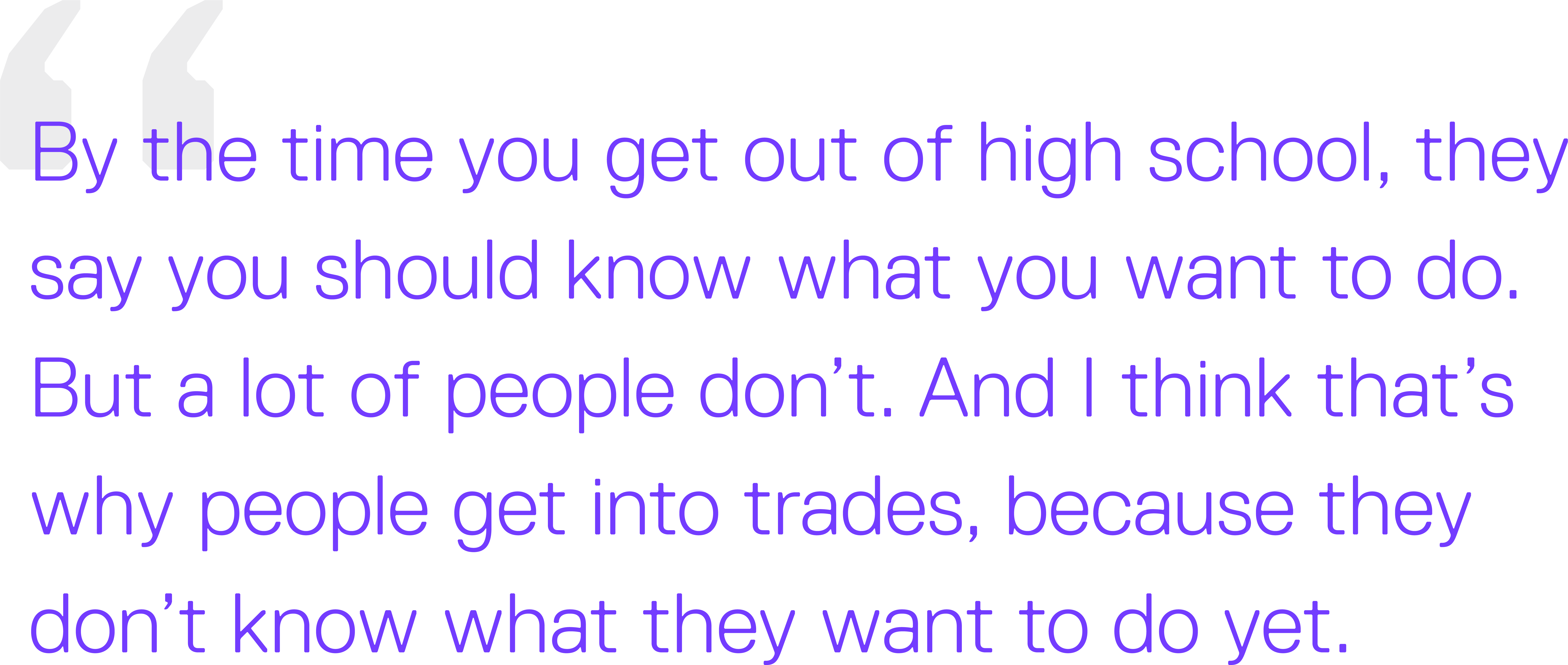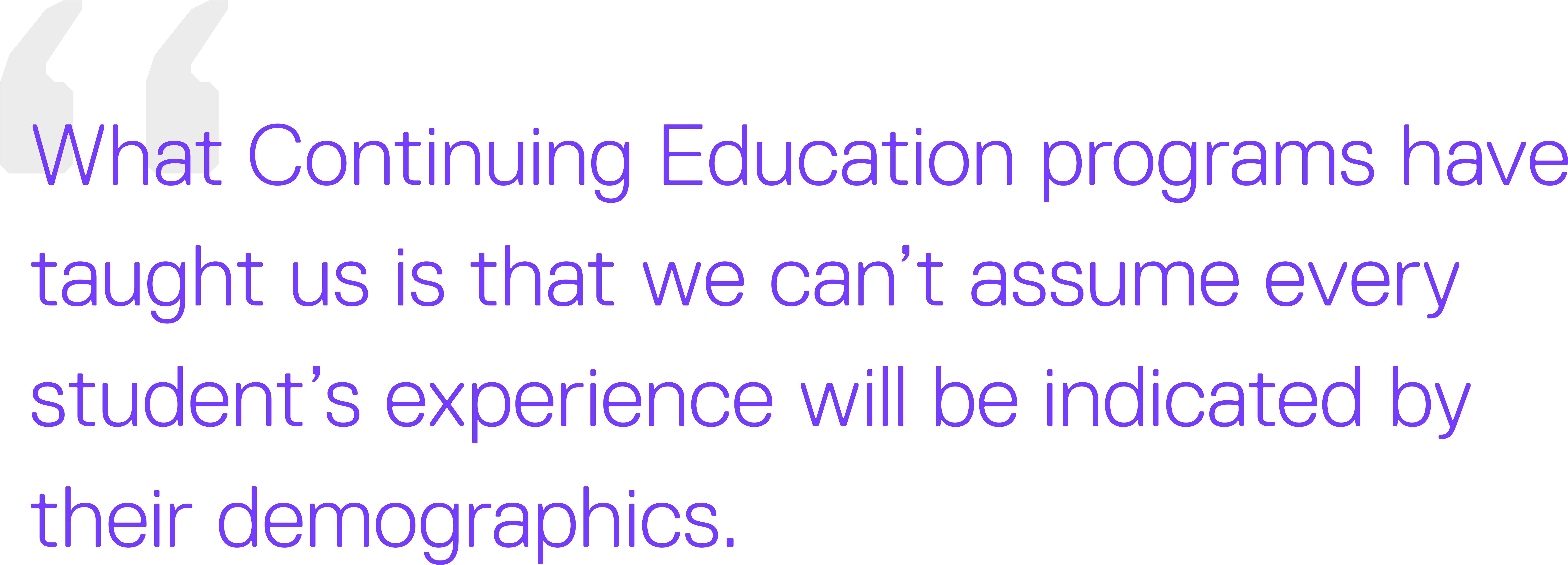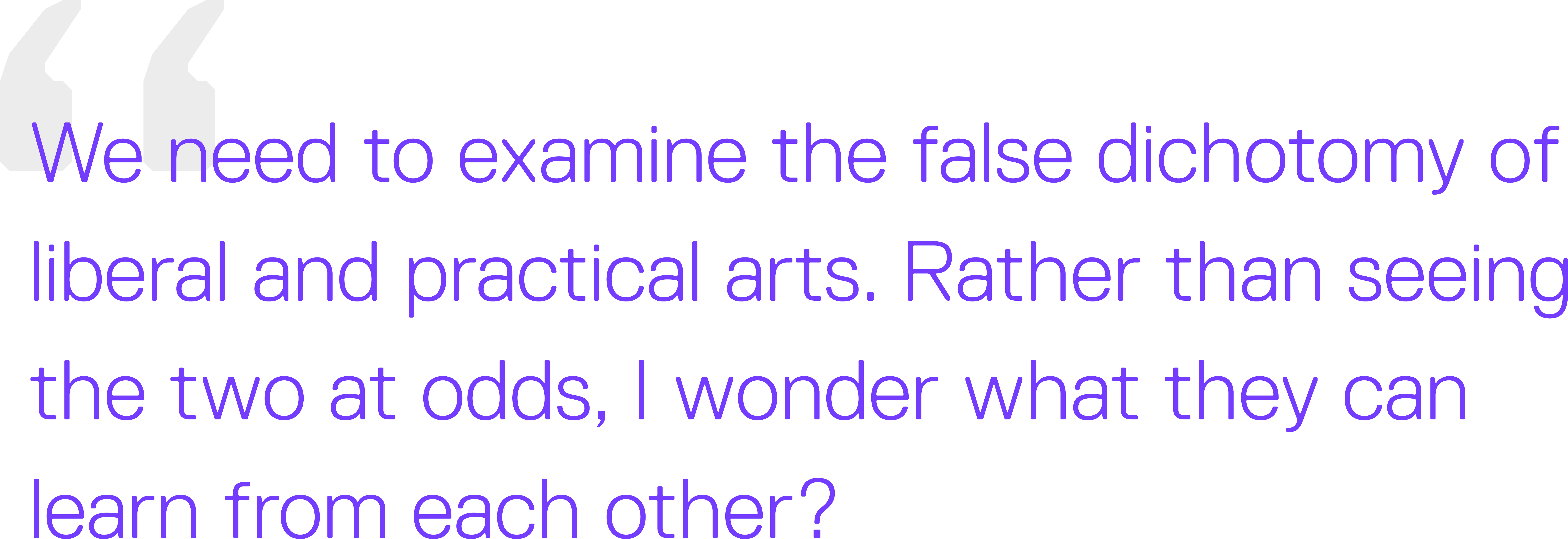
Most of my career was spent preaching the value of, “liberal arts education for all,” while recruiting for my alma mater. Like many, I believe values such as critical thinking, inclusion, and effective communication are the bedrock of our democracy, and fostered by liberal arts institutions.
However, in the wake of our divided political climate, long-term forecasted millennial debt and underemployment, and debates about whether institutions of higher education foster opportunity or perpetuate inequality, I have started to reconsider my position. It seems that I’m not alone – a recent Gallup study indicates many campus leaders are concerned about the future of liberal arts, its value, and what that means for developing an educated America.
Lately, my perspective has changed. My role with TargetX was my first exposure to working with Continuing and Extended Education programs. After consulting with clients, deepening understanding of continuing education professionals’ work, and attending UPCEA conferences, I believe ConEd programs are adding in significant ways to the democratization of higher learning.
This realization really hit home for me this week when my brother decided to “go back to school” at age 29. My brother and I could not be more different. He loves country music, fishing, and drives a truck. On the other hand, my idea of camping is a Marriott more than 40 minutes away from a major airport. He prefers to work with his hands and is highly technical – meanwhile, anyone who knows me well enough will tell you I can’t tell left from right. We als had extremely different educational experiences: whereas I would be happy as a professional student for the rest of my life, he had gone to community college off and on for several semesters and vowed to never return to a classroom.
So, his news that he was furthering his education this late in his life came as quite a surprise to me. To better understand what it was about the Continuing/Extended Education model that appealed to him, and perhaps to the growing number of students seeking credentials, badges, and certificates instead of degrees, I decided to interview him for this post.
Q: What brought you to your current profession?
A: I bounced around to different jobs and different trades. I’m a hands-on person. It’s what I like to do. I don’t like to sit down and stay in one place. I like to be out there and feel everything myself, and that’s how I landed at the job I’m at now – through friends. I like what I do.
Q: What made you decide to pursue additional training?
A: Well, I didn’t really have a choice! My boss actually had me sign up and is now paying for the class. I’m sure I could have been checking myself if I’d known. Now, I get it; “Hey, you’re in this business. Why not get certified?”
And he wants to have highly trained technicians, which I do too. I want to be one – I also want to know everything I can about the business and how everything works.
Q: What have your experiences with higher education been like before?
A: I really haven’t had specific classes for other jobs that I’ve had. My training has all been hands-on in the job. I didn’t have to go to a classroom or anything, which I prefer. It’s a lot better than looking at a screen or reading something in a book, because you’re hearing and feeling it in that moment.
Q: When you went to college, how were the classes different than what you’re taking now? How did you feel in school back then?
A: It’s a lot different. College was kind of like going into the unknown and not knowing what you’re getting into. Like, you don’t know who the people are who are in the class with you. You don’t know who the teacher is or what they’re going to try to teach you. And then you pick a subject or a class and whether you pick that just on the decision of you think it’s cool, or you might like it, you don’t know for sure.
But, you know, with my job and this certification, I know exactly what I’m doing. I know what I’m doing and how to get better at it. And you actually get better at it as you have the opportunity to practice. You aren’t trying to learn something outside the area of what you’re practicing.
Q: How do you feel about going back to school? How did school make you feel previously?
A: Trades are important. All the different trades are important. I never thought they weren’t important at all. There’s that person who is going to be doing their certain job to their best ability, and you need to be able to trust them if that’s what they specialize in.
Everyone goes through high school, right? Well, most people do. And you don’t know why you’re doing it. You’re trying to broaden the spectrum of your brain. You learn to read when you’re young, and that’s important, but a lot of the other things, I feel like, are just trying to get you to see what you might enjoy in life. All the classes you take, you find out what you’re good at and what you’re not good at.
Now, I feel great. I’m actually looking forward to going back to school. I am looking forward to specialize in and broaden my knowledge on something I do every day. I don’t know everything about it yet, and I’ll learn more about it, and it will just get easier. The same company that I work for – hundreds of other people do the same thing. But you never know who is doing it best. That’s why I’m excited to separate myself. Put something in front of my name. That’s a great thing to have.
Q: A lot of people in higher education are concerned about its future, in part because not everyone has the same opportunity and because some people say the traditional four year liberal arts degree is not as valuable as it used to be. What do you think about higher education overall? If you could give people in charge some advice from your perspective, what would you tell them?
A: I would tell them I think it’s still okay. There are so many people that go off in different directions. Some people have a different type of learning style. Some people don’t have that same type–like me. I’m not going to sit down and write on paper, or type or learn in a classroom for a long time. That’s just not me. I feel like going through school and life, you try to figure out what kind of job you might have. There are just different types of people who need different offerings. Colleges, of course, should be offering more courses like this one.
You have so many people going through college – they have to know that they are dealing with two types of people, two different ways of learning. Not everyone learns the same way. You know, you can’t stare at a screen or talk to somebody and tell them, “Hey, write this stuff down and you’re going to learn it.” You just can’t do that for everyone. Some people need you to reach out to them, and show them, right up in their face, what is going on. It makes sense, right?
I mean, I hate writing papers. I really do. Like, you telling me what to write if it’s not something that is meaningful to me, I mean…ugh. I’m human. I can analyze stuff and produce my own unique thoughts on it. But, you are telling me to write something that I don’t have any knowledge on, then I don’t want to do it.
There needs to be more room for practical knowledge. You learn about what you care about growing up. By the time you get out of high school, they say you should know what you want to do. But a lot of people don’t. And I think that’s why people get into trades, because they don’t know what they want to do yet. I think that’s actually the same reason people go to college – they don’t know what they want to do yet so they major in English. I mean, I’m a prime example. I went to college, right? I picked the dumbest classes, and I didn’t complete them because my GPA was low. I was taking psychology, German, sociology – which I did good in! – you know, I picked stupid stuff. I didn’t know what I was supposed to be doing. I was like, I think German might be fun, let’s do it! And then, I had to pay for it.
What I’m doing now has nothing to do with those choices I made. I mean, I always knew I wasn’t one to be sitting in a cubicle – I can’t! If I could talk to a President of a college, I would say definitely add more hands-on stuff. Even for people like you, sis, who think they need liberal arts. I think everyone should have to take a hands-on class because they don’t really know yet. Then, when people like me figure out that they’re good at that – problem solving with your hands and not math or biology – they deserve opportunities later in their careers, too.

This interview, to me, illustrated a few things that Continuing Education seems to be doing extremely well in order to provide pathways for people to better themselves personally and economically. I actually believe some of these qualities are things that the traditional liberal arts colleges, that I hold dear, could learn from. My takeaways:
1. We cannot make universal assumptions about students’ pre-college experiences.
Adult learners are entering or reentering higher education for the first time in years, and many may have scars from their previous experiences. Whether they do so by the vehicle of a completion program, a traditional four-year program, or through Continuing Education, it’s important to recognize the emotional impact that the idea of going back to school may have on some learners.
Additionally, for first-time freshmen, the process can still be scary. High school may not have prepared many students for college or adulthood like we’d imagine. My brother and I are the same race, went to the same well-funded public high school, and yet had very different experiences with college-going. What Continuing Education programs have taught us is that we can’t assume every student’s experience will be indicated by their demographics.
2. A return to the art of relational recruitment.
Given the variety of experiences students have before entering higher education, and given the current landscape of declining enrollments at many liberal arts institutions, I believe we need to return to relational recruitment. Continuing Education programs employ recruiters with amazing people skills, a depth of knowledge about their many degree programs, and organizational efficiencies that many liberal arts schools can learn from.
When working with different kinds of students and their unique motivations, recruiters must be adept at understanding the goals and behaviors of professionals seeking additional training, community members seeking personal enrichment, tradesmen who may be reluctant to pursue formal education, international students who need to complete ELL programs to meet ultimate degree-seeking goals, and more. Additionally, knowing it is impossible to reach all students, many Continuing Education professionals maintain relationships with businesses to help foster a pipeline of students.
My brother mentioned that he would never have considered going back to school if he had not been asked, and that an employer-paid benefit was an underlying factor. How can liberal arts colleges learn from these outreach strategies? Should liberal arts recruiters be cultivating champions for their programs within local businesses, high schools, and colleges? Are there creative financial benefits that could be extended to these partnerships?
How does your institution’s marketing help invite students in and validate that they belong in your institution? Do you have the tools you need, such as a good CRM strategy, to record nuanced interactions with the many different students you work with and to capture their particular motivations and goals?
3. The method and practice of teaching matters.
For the first time in his life, my brother was excited to pursue formal education because it mattered to him on a personal level. One thing the practical arts and Continuing Education offerings are getting right is foundational to educational teaching and learning theory – an understanding of human motivation.
In his book, Drive, Dan Pink brought light to a Self Determination theory (Ryan and Deci), that indicates people truly own their performance or learning when the conditions of competence, autonomy, and relatedness are met. In other words, my brother’s ConEd experience was marked by him bringing foundational knowledge to the experience and knowing exactly which courses to take, whereas his liberal arts journey was marked by feeling lost in the course catalog and uncertain about what his classroom experience would be (competence).
His certificate program enabled him to immediately get into the classes he wanted to take whereas the liberal arts experience involved haphazardly choosing classes from a prescribed list, or being given little choice in assignments (autonomy).
Finally, the content of the certificate is being made personal to my brother – he’s learning something he views as both helping him develop mastery of a skill and problem-solving. He easily sees the application to his daily life and values what he’s learning, compared to not understanding how Sociology or German would help him develop similar outcomes.
We need to examine the false dichotomy of liberal and practical arts. Rather than seeing the two at odds, I wonder what they can learn from each other? It’s been posited that Bloom’s taxonomy of higher-order learning skills, such as synthesis and analysis, are the domains of the liberal arts and yet many struggle to find even application. Cue the haunting question of my undergrad years, “What are you going to do with an English degree?”
Let’s continue to think about how we can further interject liberal arts values into technical curriculum. I believe the outcomes needed for an educated, democratic society can be fostered in a practical environment through different strategies. The key here is understanding the students’ lived experiences in order to contextualize these concepts appropriately.



